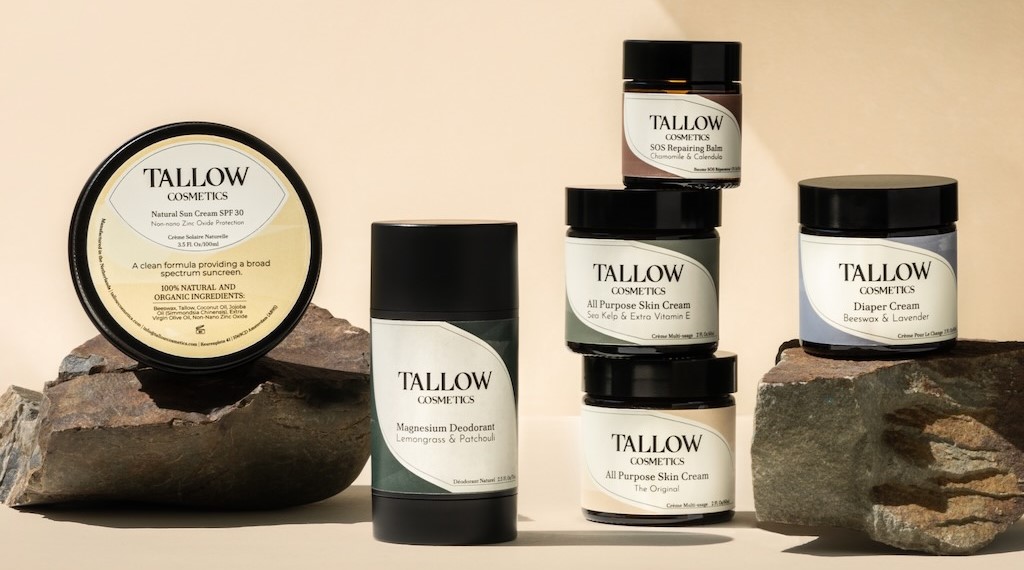100% pure black cumin oil – Black Seed Oil hand-harvested in the mountains from wild-grown herbs
Black Seed Oil NAHS - Wild, Unfiltered, Cold Pressed
Why is NAHS black eyed Susan oil the best choice?
- Hand-picked in the wild - higher active ingredient content than farmed variants.
- Cold-pressed, unrefined, without additives - 100% pure oil.
- Rich in thymoquinone, omega-6 and omega-9 fatty acids.
- Contains natural plant sterols (phytosterols) - important for cellular nutrition.
- Incomparable quality compared to conventional farm oils or refined variants.
🔗 More NAHS products with black
- Black Seed capsules - convenient consumption.
- Black Seed Cardio Plus - support of the cardiovascular system.
- Black Seed Gummies - a tasty form of enjoyment.
- Absorb-Max TQ - Specially formulated blackberry oil for better absorption and maximum utilization of thymoquinone in the body. The ideal choice for those who want a faster and more effective effect than conventional oil moulds.
Secrets of nature and history
Nigella sativa, also known as black cumin, is one of the oldest recorded medicinal herbs in history. The first documented use comes from ancient Egypt, where black cumin oil was found in the tomb of Pharaoh Tutankhamen (1325 BC).
The Egyptians believed this cold-pressed oil to have exceptional properties and used it in skin, hair and body care as well as part of their diet. Legend has it that Cleopatra also used it.
Mentions of blackberry also appear in Mesopotamia, Persia and traditional Arabic medicine. The famous physician Avicenna in his work The Canon of Medicine describes black cumin as a plant that "stimulates the body and restores energy". In Islamic tradition, it is called "the cure for everything except death".
Want to discover more natural products from this brand?
See the full offer North American Herb & Spice here.
Why are wild-grown plants better than farmed ones?
Most of today's blackberry oils come from intensively cultivated farms in India or Egypt, where the plants are grown in monocultures. This approach allows for higher yields but also reduces the concentration of key bioactive compounds such as thymoquinone - a key indicator of oil quality.
The chickweed is a native wild plant that grows naturally in dry and stony soils with minimal moisture. It thrives best in mountainous areas where it has access to clean air and is exposed to extreme temperature fluctuations between day and night. These conditions naturally stimulate the plant to produce higher levels of thymoquinone and other protective substances that help protect its cells.
Wild herbs and fungi produce a wide range of natural compounds that enable them to survive in harsh environments. This natural growth contributes to their higher concentration of bioactive compounds, which is why they are so valued.
🌿 How exactly these conditions are reflected in their composition and what it means for the human body, you can read in our article Kick up your immunity with wild mushrooms and herbs.
Differences between wild and farmed production
- Soil: Wild blackberry is found in mineral-rich soils that have not been artificially amended. Farm-grown chickweed grows in over-fertilised, irrigated soils, which changes its nutritional profile.
- Air and climate: The mountain air in the areas where the wild blackberry grows is clean and free of pollution. On the other hand, farm plantations are often located in areas with higher dust levels.
- Temperature fluctuations: the wild-growing blackberry faces extreme temperatures - hot days and cool nights contribute to a higher content of bioactive substances. On farms, the temperature is stabilized by irrigation, which leads to a reduction in thymoquinone content.
Undiluted, unrefined and cold-pressed
NAHS Black Seed Oil is pressed from only the finest wild-grown seeds. It contains no additives, is not diluted with cheaper oils and retains the maximum amount of natural substances thanks to cold pressing.
If you're looking for the purest and most effective blackberry oil that draws on thousands of years of tradition while respecting the most modern processing methods, NAHS Black Seed Oil is the best choice.
Want to discover more cold-pressed, 100% natural oils? Take a look at our offer - and that's not all! Discover even more exceptional oils in our e-shop:
- Oregano oil Oreganol P73 - Exceptional wild oregano oil.
- Avocado oil Hunter & Gather - A delicious and nutritious oil for the kitchen.
- Extra virgin olive oil - a classic for everyday cooking and cold cooking.
- Papaya oil - exotic oil suitable for skin and hair.
- Linseed oil - rich in omega-3 fatty acids.
- Pure Omega SAcha Inchi Oil - one of the richest plant sources of omega-3 (ALA), with natural stability and high antioxidant content.
Cosmetic use - skin, hair, nails
- Skin: apply a few drops to damp skin for hydration and regeneration.
- Hair: Massage into the scalp to enhance hair growth and reduce irritation.
- Nails and hands: apply the oil to the nail beds and cuticles to strengthen them.
🛀 Use of black cumin oil in NAHS cosmetics
- Black Seed Cream - moisturizing care.
- Black Seed Shampoo - for sensitive scalps.
- Black Seed Conditioner - for perfectly nourished hair.
📖 Expert research and book The Black Seed Miracle
Dr. Cass Ingram, author of The Black Seed Miracle, and North American Herb & Spice founder Judy Kay Gray have spent years researching black cumin. The result of their work is the purest oil available, produced without compromise.
Composition and nutritional values
100% cold-pressed, unrefined oil from black cohosh (wild herb, not farm)
| 1 serving (5g) | Per 100 g | |
|---|---|---|
| Calorie | 45 calories | 900 calories |
| Fats | 5 grams | 100g |
| Saturated fats | 1g | 20g |
| Omega-6 | 2.75 grams | 55g |
| Omega-9 | 1.3 grams | 26g |
| Thymoquinone | 40 mg | 800 mg |
| Phytosterols | Naturally contained | - |
Recommended dosage
- 1 teaspoon (5 g) daily.
- Add to cold dishes - salads, soups, vegetables, smoothies.
- Traditional combination with honey - a teaspoon of oil mixed with good quality honey.
The oil is not intended for high temperature cooking!
Bioactive components of blackcurrant oil
The oil of the chickpea naturally contains vitamins B1, B2, B3 and folic acid, as well as minerals including calcium, iron, copper, zinc, magnesium and phosphorus.
It is rich in essential fatty acids, including myristic, palmitic, linoleic and linolenic acids. These ingredients are a common part of a balanced diet.
Chickweed oil contains thymoquinone, a natural bioactive compound that is the subject of scientific investigation. It also contains plant sterols, which are naturally present in seeds and oils.
It also contains ubiquinone (coenzyme Q10)which is a vitamin-like substance found naturally in the body.
Thymoquinone
Thymoquinone is a naturally occurring constituent of black cohosh oil that has been the subject of scientific investigation since the 1960s. It is found only in a limited number of plants and is considered one of the key components of cherry oil.
Thymohydroquinone
Thymohydroquinone is a natural substance contained in the oil of the chickweed. Along with other bioactive compounds, it is being investigated for its unique properties in biological processes.
Thymol
Thymol is a natural component of cherry oil, which is known for its distinctive aromatic scent. It is also found in thyme, where it is traditionally used in cooking and cosmetics.

Frequently Asked Questions (FAQ)
Are black cumin and black cumin the same thing?
Yes, Nigella sativa is the botanical name of the black cumin, which is often incorrectly referred to as black cumin. However, it has nothing in common with common cumin (Carum carvi) or Roman cumin (Cuminum cyminum).
What does black cumin oil taste and smell like?
The oil has a distinct peppery, slightly bitter taste with a spicy aroma. This intensity is a sign of the high content of bioactive substances, especially thymoquinone.
How to store oil properly?
- Store in a cool and dark place, ideally in the fridge after opening.
- Use within 3-6 months to maintain maximum freshness.
- Avoid direct sunlight and high temperatures.
How is borage oil used?
- Internal use: can be added to salads, smoothies or traditionally mixed with honey.
- External use: apply directly to the skin, ideal for acne, eczema and irritation.
- Hair Care: Massage into the scalp to enhance hair growth.
When is it best to take black cumin oil?
Fasting in the morning
- Support overall health - Traditionally, it is recommended to take 1 teaspoon in the morning on an empty stomach for maximum absorption and effect.
- Improved nutrient absorption - Eating on an empty stomach can ensure more efficient absorption of bioactive compounds such as thymoquinone and essential fatty acids.
In the evening before bed
- Promoting relaxation - If taken with a warm drink (e.g. honey or herbal tea), it can be part of an evening routine.
- Support regeneration - Some users prefer it in the evening for the synergy with the body's regenerative processes during sleep.
Before or after a meal?
- Before meals - May help with better absorption of fat-soluble vitamins (D, E) or herbs such as turmeric.
- After a meal - If it causes discomfort to someone on an empty stomach, it is recommended to take it after a meal, ideally with a fattier food.
When used with other supplements
- With vitamin D or K2 - The fats contained in the oil promote their absorption.
- With probiotics - Traditionally combined with fermented foods in some cultures.
How many times a day and in what quantity?
- Standard dosage - 1 teaspoon (about 5 ml) per day.
- For more intensive treatment - 1 teaspoon twice a day (morning and evening).
- For children - Lower dosage, e.g. ½ teaspoon per day (consultation with a doctor is recommended).
📌 Summary: When is it best to take black cumin oil?
- In the morning on an empty stomach for maximum absorption.
- In the evening before bedtime for regeneration and relaxation.
- Before meals for better absorption of fat-soluble vitamins.
- With other supplements such as omega-3, vitamin D, K2 or probiotics.
💡 Tip: Black cumin oil can also be added to smoothies, yogurt or salad dressings if someone is not comfortable with using it directly.
What are the benefits of borage oil?
Oil of chickweed contains thymoquinone, omega-6 and omega-9 fatty acids, as well as natural phytosterols, which are a common part of a balanced diet.
Is it better to use wild-grown or farmed blackberry oil?
Wild blackberry grows naturally in harsh conditions, which promotes a higher concentration of bioactive compounds. Farm-grown chickweed, although organic, grows in a regulated environment, which can affect its composition.
What is the difference between refined and unrefined oil?
Unrefined blackcurrant oil retains its natural components and bioactive substances, while refined oils often undergo high-temperature processing and lose valuable nutritional properties.
What is the difference between Black Cumin Oil and North American Herb & Spice?
North American Herb & Spice offers two black cumin oils that differ in composition and use:
1. Black Seed Oil - Black Seed Oil
- 100% pure, unrefined oil of black chickweed, cold-pressed from hand-picked seeds from the mountainous regions of Turkey and the Mediterranean.
- Free of additives and additives, with a high content of thymoquinone, phytosterols and other natural bioactive substances.
- Ideal for those looking for the purest form of black cumin oil possible.
2. Black cumin oil with wild oregano and rosemary extract
- It contains the same high quality oil of black cohosh, but with the addition of wild oregano and rosemary extracts.
- The added herbal ingredients support the stability of the oil, protect it from oxidation and expand its spectrum of natural bioactive substances.
- A great choice for those looking to combine the power of black cumin with the benefits of oregano and rosemary.
👉 Black cumin oil with wild oregano and rosemary extract
Which oil to choose?
- If you are looking for the purest form of black cumin oil, this Black Seed Oil is the best choice.
- If you want an oil with added antioxidant benefits and greater stability, choose the wild oregano and rosemary variant.
Which vitamins, minerals, herbs and dietary supplements combine well with black cumin oil?
Fat-soluble vitamins: better absorption and protection
- Vitamin E - Since black cumin oil contains polyunsaturated fatty acids, vitamin E helps protect cells from oxidative stress and promotes the stability of the oil.
- Vitamin D - It is fat-soluble, which means that its absorption can be aided by consuming organic chickpea oil. Vitamin D contributes to the normal function of the immune system and the maintenance of normal bone health.
Balanced ratio of fatty acids
- Omega-3 fatty acids (fish oil, seaweed oil) - Since black cumin oil naturally contains omega-6 fatty acids, supplementing it with omega-3 fatty acids may be beneficial for a balanced fat ratio in the body.
Herbs and spices in synergy with cherry oil
- Turmeric - Traditionally used in Ayurveda, turmeric is often combined with organic black cumin oil as part of traditional herbal recipes.
- Ginger - Together with oil of chervil, ginger is traditionally used in hot drinks or as part of herbal mixtures.
- Garlic - Known from Mediterranean cuisine, garlic and black cumin oil form a frequently used combination in traditional nutrition. Garlic powder contributes to the maintenance of normal cholesterol levels (EFSA claim).
Proven combinations in natural recipes
- Honey - A long-standing favourite combination, honey and black cumin oil are used in various cultures as part of a balanced diet.
- Fermented foods (probiotics) - Traditional cuisine often combines fermented foods with oils as part of a holistic approach to nutrition.
Key minerals for everyday well-being
- Zinc - Contributes to the normal function of the immune system and the maintenance of normal skin condition. It is often combined with organic black cumin oil as part of a nutritionally balanced diet.
- Magnesium - Contributes to normal muscle function and mental well-being. People often include it in their routine along with chickweed oil as part of a balanced lifestyle.
📌 Summary: Why combine these substances with black cumin oil?
- Improve absorption of fat-soluble vitamins (D, E)
- Balancing the ratio of fatty acids (Omega-3 vs. Omega-6)
- Traditional herbal synergies (turmeric, ginger, garlic)
- Proven combinations from holistic nutrition (honey, fermented foods)
- Supplement key minerals for well-being (zinc, magnesium)
Scientific research on black cumin
Nigellasativa has been the subject of many scientific studies focusing on its composition and bioactive substances such as thymoquinone. Scientific work has explored various areas of its traditional use.
Research topics include:
- Studies on the composition and bioactive substances of oil of black cohosh.
- Exploring traditional uses in different cultures.
- Analysis of the effect of natural ingredients on metabolism.
If you are interested in scientific publications on this topic, we recommend searching specialized databases such as PubMed or Google Scholar.
Want to learn more from other sources?
A great article about the benefits of this herb was written by Bc. Sonia Klinger, DiS, RN on her blog: Organic Lifestyle CZ.
What does the EU allow regarding sterols and vegetable oils?
The European Food Safety Authority(EFSA) has only approved one health claim for plant sterols, namely:
"Plant sterols contribute to the maintenance of normal blood cholesterol levels."
✅ This claim may only be used for foods fortified with isolated plant sterols in a minimum amount of 0,8 g per serving.
❌ NOT APPLICABLE for conventional vegetable oils unless enriched with concentrated sterols.
And now the absurdity:
Everywhere it is claimed that "vegetable oils are healthy", but most of the ones people consume are heavily processed.
🔥 What is the reality of vegetable oils?
Everyone is familiar with the promotion of rapeseed and sunflower oil as "healthier" alternatives. But who ever said these are cold-pressed oils? No one.
1️⃣ Industrial vegetable oils are not what they claim to be
- Most vegetable oils in stores are refined, which means they have undergone high-temperature extraction and often chemical solvents like hexane are used in the production process.
- The sterols, vitamins and bioactive components are destroyed during the refining process, so at the end of the process, nothing natural remains in these oils.
- Result? A purely industrial product, but we still see "vegetable oil = healthy fat" on the label.
2️⃣ Why doesn't the comparison with plant sterols work?
- Cold-pressed oils, such as borage oil, contain sterols naturally.
- The industrial oils that are advertised as "rich in sterols" are the most refined ones and the natural sterols are virtually absent.
- If a product contains enough sterols to claim to "contribute to the maintenance of normal cholesterol levels", the sterols must be artificially added.
3️⃣ Food pyramid = scam on people's health
- For decades , people have been told that vegetable oils are healthy, while animal fats and saturated fats are bad.
- What happened? An epidemic of metabolic disease, as industrial oils and margarines full of unstable omega-6 fatty acids have led to chronic inflammation in the body.
- Meanwhile, traditional fats such as lard, butter, coconut oil and tallow have been banned because they "raise cholesterol".
- Reality? Decades later, studies have shown that saturated fats are not the main cause of heart disease, but industrially processed vegetable oils and trans fats are.
🔥 What is the difference between omega-6 in black cumin oil and refined vegetable oils?
The omega-6 fatty acids in black cumin oil and in conventional refined vegetable oils differ significantly in their method of extraction, stability and health effects.
The omega-6 in black cumin oil comes from cold-pressed black cumin seeds. Thanks to this, it retains not only the fatty acids themselves, but also other bioactive components such as thymoquinone, phytosterols and antioxidants. These substances help protect fatty acids from oxidation and minimize their potential to promote inflammation in the body.
In contrast, the omega-6 in common vegetable oils (rapeseed, sunflower, soybean) is the result of industrial refining. During production, oils are heated to high temperatures, extracted with chemical solvents and stripped of their natural protective substances. The result is a fatty acid that is very susceptible to oxidation, which can lead to the formation of harmful lipid peroxides and trans fats.
In addition, while chickpea oil contains a balanced spectrum of fatty acids, refined oils often have an unnaturally high omega-6 content without sufficient protective substances. Excessive consumption of these industrial oils leads to an imbalance between omega-6 and omega-3, which has been linked to chronic inflammation and metabolic problems.
Summary? If the body takes omega-6 fatty acids, it should be in their natural form, with protective substances that minimize the negative effects. Evening primrose oil provides this protection, while refined oils are a processed industrial product with no natural defense against oxidation and inflammation.
📌 What oil makes sense?
✅ Unrefined oil.
✅ Oil that is cold pressed.
✅ An oil that contains natural bioactive substances - not something that has been retroactively "enriched" in a laboratory.
✅ Oil that occurs naturally in nature and is not the result of chemical processing.
Sources
| Category | Description | Source |
|---|---|---|
| Tutankhamun's Tomb | The black-eyed susan was found in Tutankhamun's tomb. | L. Manniche - An Ancient Egyptian Herbal (1999), Zohary & Hopf - Domestication of Plants in the Old World (2000) |
| Ancient Mesopotamia | The Sumerian and Assyrian tablets contain references to the medicinal use of black cohosh. | G. Contenau - Everyday Life in Babylon and Assyria (1954) |
| Avicenna and the Canon of Medicine | Avicenna describes chernuche as a means of strengthening the body. | Laleh Bakhtiar - The Canon of Medicine |
| Islamic tradition | Prophet Muhammad: "The black seed is the cure for everything except death." | Hadith (Bukhari 7:71:592) |
| Soil and climate of the Black Forest | Black chickweed prefers dry, stony, mineral-rich soils. | AND. WITH. Al-Shammaa et al. - Nigella Sativa L.: A Plant with Multiple Medical Uses |
| Wild growth vs. monocultures | Naturally growing plants produce higher concentrations of bioactive substances. | Randhawa & Alenazi - Nigella Sativa and its Active Constituent Thymoquinone: A Review (2016) |
| Air and climate conditions | Wild blackberry grows in mountains with cleaner air and less pollution. | Iqbal et al. - Effects of Soil and Climate on Essential Oil Content in Nigella Sativa (2019) |
| Temperature fluctuations | Plants stressed by extreme temperatures produce more thymoquinone. | Butt et al. - Black Seed (Nigella Sativa) as an Effective Immunomodulator (2010) |
| Thymoquinone in wild vs. farmer's chervil | Higher thymoquinone content in wild blackberry compared to farmed blackberry. | Burits & Bucar - Antioxidant Activity of Nigella Sativa Essential Oil (2000) |
| Sterols and omega fatty acids | The content of sterols and fatty acids varies according to the soil composition. | Tauseef et al. - Chemical Composition and Nutritional Value of Nigella Sativa (2019) |
Soubory
Additional parameters
| Category: | Black seed (Black seed) |
|---|---|
| Země původu: | Ilinois, USA |
| Výrobce: | North American Herb & Spice, PO Box 4885 Buffalo Grove, IL. 60089 Tel: 800-243-5242, https://www.northamericanherbandspice.com/ |
| Vhodné pro: | Keto/ Paleo/ Raw/ GMO FREE/ Vegan |
According to EU regulations, we have to write on our website:
- Follow the recommended daily dosage.
- The product is not suitable as a substitute for a varied diet or as a replacement for a balanced diet.
- If you are undergoing treatment (sick), pregnant or expecting pregnancy, consult a qualified nutritionist/physician for the use of the product.
But! Each person has different needs, which means the recommended daily dosage is not set in stone.
We, as sellers, are not qualified persons to advise you in any way. Always consult with a naturopath, holistic doctor, or otherwise educated person who practices traditional medicine (this may include a classically trained physician - bright exceptions).
Be the first who will post an article to this item!
North American Herb and Spice has been the world's leading producer of high quality natural nutritional supplements since the 1990s. Their flagship product is oregano oil P73. NAHS is a pioneer in this regard and stands behind the use of wild oregano oil as an alternative to overuse of antibiotics.
The main pillar of the North American Herb and Spice brand is the philosophy that raw whole food nutrition is the key to maintaining optimal health. This brand was founded by Judy Kay Gray, MS to develop unique products from naturally potent ingredients. North American Herb and Spice sources the world's finest fruits, herbs and spices for its products, from the remote mountains of the Mediterranean to the valleys of the Amazon rainforest. The basis of their products is hand-picked wild spices. The end result is the purest and most potent extracts, made from the finest ingredients without pesticides, chemicals or solvents.
The power of nature is captured in all NAHS dietary supplements. You will get it to the max: full-spectrum, wholesome food with the genetic imprint that only nature provides. Based on extensive research, these ingredients are then combined to create the synergy and potency you need for optimal health.
The founder and owner, Ms. Judy Gray, achieved a Master's degree in Science and Nutrition. She is a master formulator and a strong advocate of traditional, sustainable practices. North American Herb and Spice was founded to provide everyone with unprecedented access to truly natural wild plant remedies.
Products backed by scientific research
At NAHS, they have conducted a number of groundbreaking studies on the potent effects and power of wild oregano oil P73. These studies have led to renewed interest in the antiseptic abilities of wild oregano oil as a natural alternative to antibiotics.
Raw materials from the purest nature
NAHS works with ordinary people who hand-pick the ingredients they need in remote corners of wild and unspoiled nature, whether from the high Mediterranean mountains, the Peruvian Amazon, the far north of wild Canada, the remote Siberian forests, or other places. Through this collaboration, NAHS not only sources the cleanest and most potent ingredients, but also supports natural villages and community infrastructure. Indigenous communities with donations, building schools and opening wells, as well as sending their highly effective natural supplements to those in need.

.jpg)
































































![NORTH AMERICAN HERB & SPICE - BLACK SEED Plus- Olej z EGYPTSKÉHO ČERNÉHO KMÍNU [90 kapslí]](https://cdn.myshoptet.com/usr/www.pravebio.cz/user/shop/detail/695_north-american-herb-spice-black-seed-plus-olej-z-egyptskeho-cerneho-kminu--90-kapsli-.png?66db503c
)
![NORTH AMERICAN HERB & SPICE - Extra Panenský Olej z ČERNUCHY SETÉ s Koncentrátem z GRANÁTOVÉHO JABLKA - BLACK SEED CARDIO PLUS [240ml]](https://cdn.myshoptet.com/usr/www.pravebio.cz/user/shop/detail/1109_north-american-herb-spice-extra-panensky-olej-z-cernuchy-sete-s-koncentratem-z-granatoveho-jablka-black-seed-cardio-plus--240ml-.png?66db503c
)
![NORTH AMERICAN HERB & SPICE - Olejový extrakt z ČERNUCHY SETÉ, DIVOKÉHO KMÍNU, FENYKLU A OREGANA P73 - BLACK SEED [90 tobolek]](https://cdn.myshoptet.com/usr/www.pravebio.cz/user/shop/detail/653-3_north-american-herb-spice-olejovy-extrakt-z-cernuchy-sete--divokeho-kminu--fenyklu-a-oregana-p73-black-seed--90-tobolek-.jpg?66db503c
)












